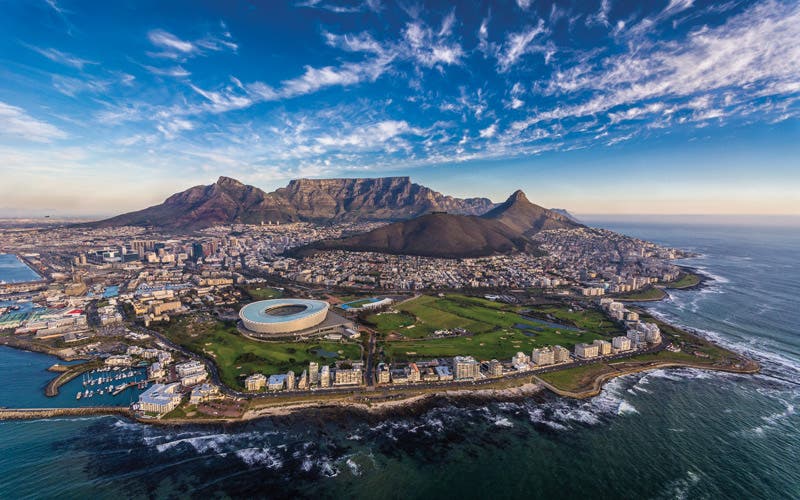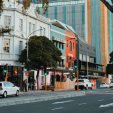The diamond showroom where you can polish your own stone
Touring the heart and soul of Cape jazz
Discover Cape Town style jazz up close with Mac McKenzie and Coffeebeans Routes
The mark of a true genius is when a person masters their art to such an extent that they don’t have to think about it anymore.
Mac McKenzie is such a person and tonight I am lucky enough to dine with him at his home in the township of Bridgetown on the Cape Flats. This South African jazz musician and composer was involved in the influential black rock band from the 80s and 90s called The Genuines. This was a serious band suppressed by the political regime of the time, but despite this each member of the band kept on playing their hearts out and today one of them even performs with Sting.
“Apartheid killed a lot of things,” says a history professor from Virginia who joins the Coffeebeans Jazz Safari today as part of his research into Capetonian music. An immense amount of creative energy was lost in the townships yet the true geniuses just couldn’t help but keep doing what they do best. Today Mac McKenzie teaches the township youths how to play music as part of The Cape Town Composers Workshop, a non profit organization.
“I don’t believe in capitalism,” says Mac in between playing a couple of jazz tunes for us, “look how much poverty it creates.”
A unique Capetonian style of jazz
He deliberately stopped working with record companies and now composes and sells his own CD’s from this very humble home where we’re sitting tonight drinking beer and snacking on peanuts. Despite a less than ideal start in life, Mac made it big in international jazz circles. He regularly gets invited to perform at major jazz venues in Europe such as The Bird’s Eye jazz club in Basel, Switzerland: “I get three nights every year.”
McKenzie’s version of jazz is absolutely Capetonian. He explains how traditional American jazz was too slow for Africa and that Cape Town added their own ghoema beat to it, illustrating beats from samba to kwela on his drum. Then he moves back onto his guitar and it’s like the instrument is an extension of himself. We all keep quiet, swept up in the music that organically developed here in Cape Town and had to fight to stay alive today.
Ghoema style Cape Town jazz started as a form of protest music that produced stars such as Miriam Makeba and the post New Year minstel festivities in Cape Town. The history professor believes that if it wasn’t for Apartheid suppression this Cape Town Carnival could have been as big as the one in Rio.
Local hospitality and a showcase of raw talent
After a typically Capetonian dinner of snoek, baked potato and generous helpings of salad Mac plays a particularly catchy song called Red Rock City. It’s about that time of day when the sun’s gone down but it’s not dark yet and the light changes colour against Table Mountain: “Nice light in South Africa hey,” swoons Mac, “oooh”.
After dinner we head over to the Swingers Lounge 021 in Wetton, which offers one of the best regular jazz nights in Cape Town. On Monday nights the Alvin Dyers band performs and afterwards open up the stage for some jazz jam sessions. I sit there mesmerized for an hour, admiring how these musicians just let it all out. The beauty inside the person comes out to play and adds the kind of magic that leaves a lasting impression on whoever is lucky enough to be in its presence.
To these maestros, same as Mac McKenzie, nothing matters when they play their jazz. Not money. Not fame. Not recognition. Only to keep on playing. Funny thing is, when this stops mattering it often just happens anyway.
By Lize de Kock
---
First artist release for Cape Town Jazz Festival.
For more about Mac McKenzie’s music, download MP3s here. Or contact Coffeebeans Routes to order CD’s or DVD’s, details below.








